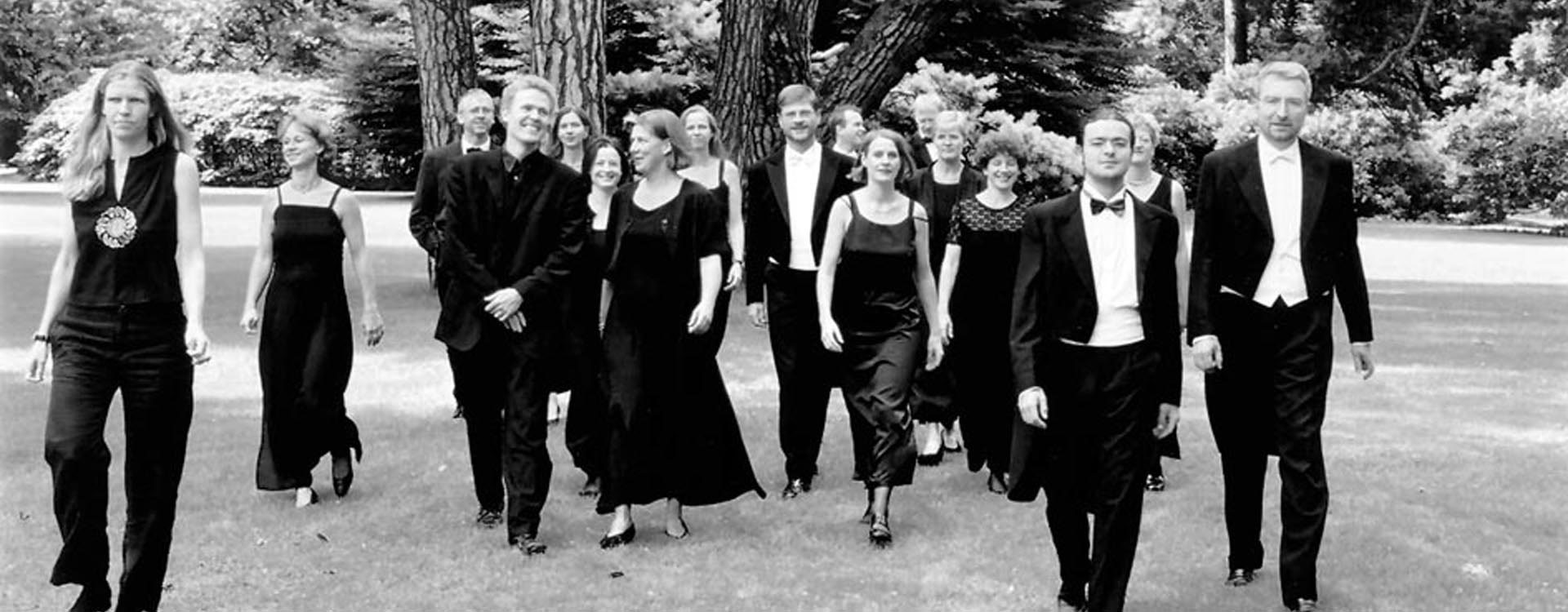
About Baroque
Director: Christian K. Weiß
Length: approx. 58 mins.
© 2005, a co-production with Siemens Arts Program, Lucerne Festival, Freiburger Barockorchester
Length: approx. 58 mins.
© 2005, a co-production with Siemens Arts Program, Lucerne Festival, Freiburger Barockorchester
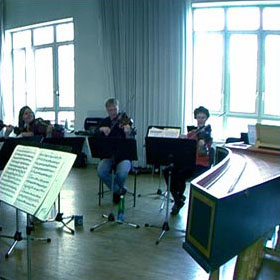
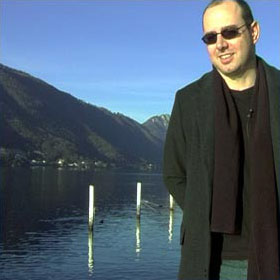
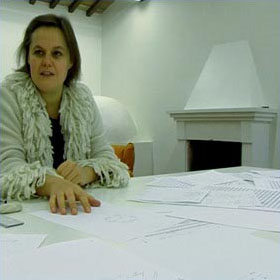
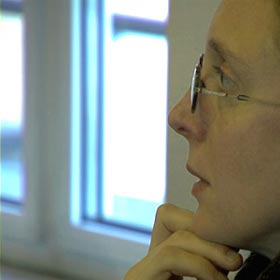
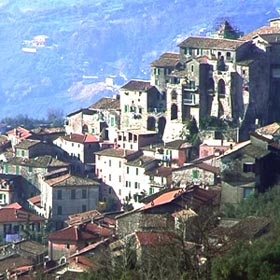
The "About Baroque" project confronts New Music with historical performance practice. In collaboration with the Freiburger Barockorchester and the Lucerne Festival, Siemens Arts Program makes it possible for five young composers to engage in an unconventional musical dialogue with Ancient Music. In their quest for the "new" in New Music, composers of the preceding and present centuries have explored and exhausted the potentials of the orchestra’s instruments in terms of their techniques of playing and their sonic possibilities.
Innovative composers have augmented orchestral capabilities by adding entire arsenals of technical and electronic materials. Historical instruments too have been used to expand the sonic world of New Music. About Baroque has gone beyond the aspect of exotic sonic components. Contemporary compositions exploit the specific ways of playing and phrasing, as well as the unique expressive possibilities that historical performance practice can offer.
Composers Juliane Klein, Rebecca Saunders, Benjamin Schweitzer, Nadir Vassena, and Michel van der Aa had the opportunity to participate in the rehearsal phases of the Freiburger Barockorchester and to intensively study the musical approach pursued by this ensemble, which works without a conductor.
Historical implications, conventions, and gestures play a role, as do questions of intonation, sonic balance, mood, dynamics, and meter.
About Baroque confronts the musicians with a new vocabulary, a different style of notation, and a new way of dealing with their instruments. The composers are challenged by an unfamiliar stylistic context. Together, both the musicians and the composers are able to acquire new perspectives and new experiences for their work.
The composers were commissioned to create compositions for the instruments that typically constitute a Late Baroque orchestra. No other media or technical means were allowed. Except for these conditions, there were no other formal preconditions.
After Juliane Klein and Benjamin Schweitzer, Michel van der Aa (NL) began his research with the Freiburger Barockorchester on March 8, 2004 in Freiburg. Van der Aa lives and works in Holland, where he was born in 1970. He has received attention in Germany for his compositions "Here to be found," which was performed at the Donaueschingen Festival (2001) and for "One," which was performed within the framework of the Berlin Festival (2003).
The Freiburger Barockorchester numbers among the leading ensembles for historical performance practice. In addition to concerts with prominent guest conductors, concert-masters Gottfried von der Goltz and Petra Müllejans also lead compositions written for many musicians "from the front seat," a tradition which was still practiced as late as the 19th century. This achieves an intensity similar to that of chamber music. It generates its own special sound, which would not be possible if the orchestra were conducted from a central podium. This essential aspect also plays a role in the five new compositions.
About Baroque celebrated its world premiere on August 27, 2005 at the Lucerne Festival. In the following weeks and months, the Freiburger Barockorchester performed the five new compositions on a European tour.